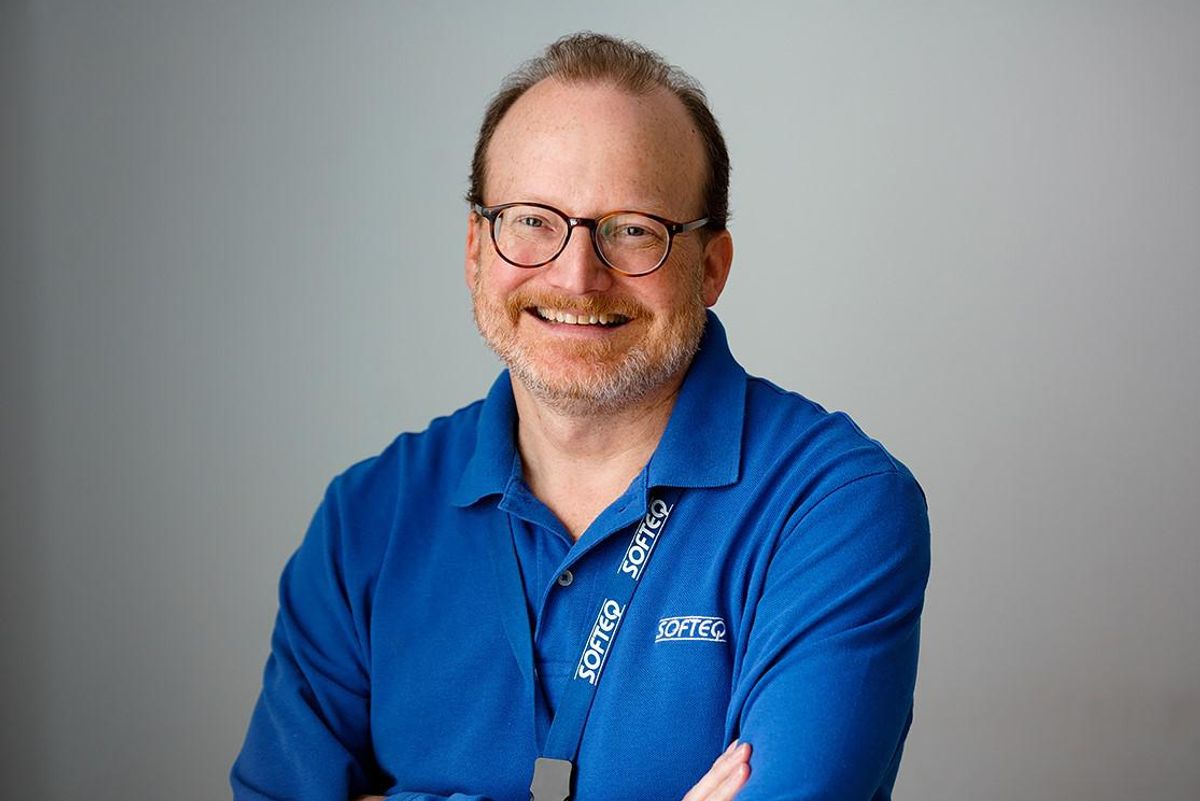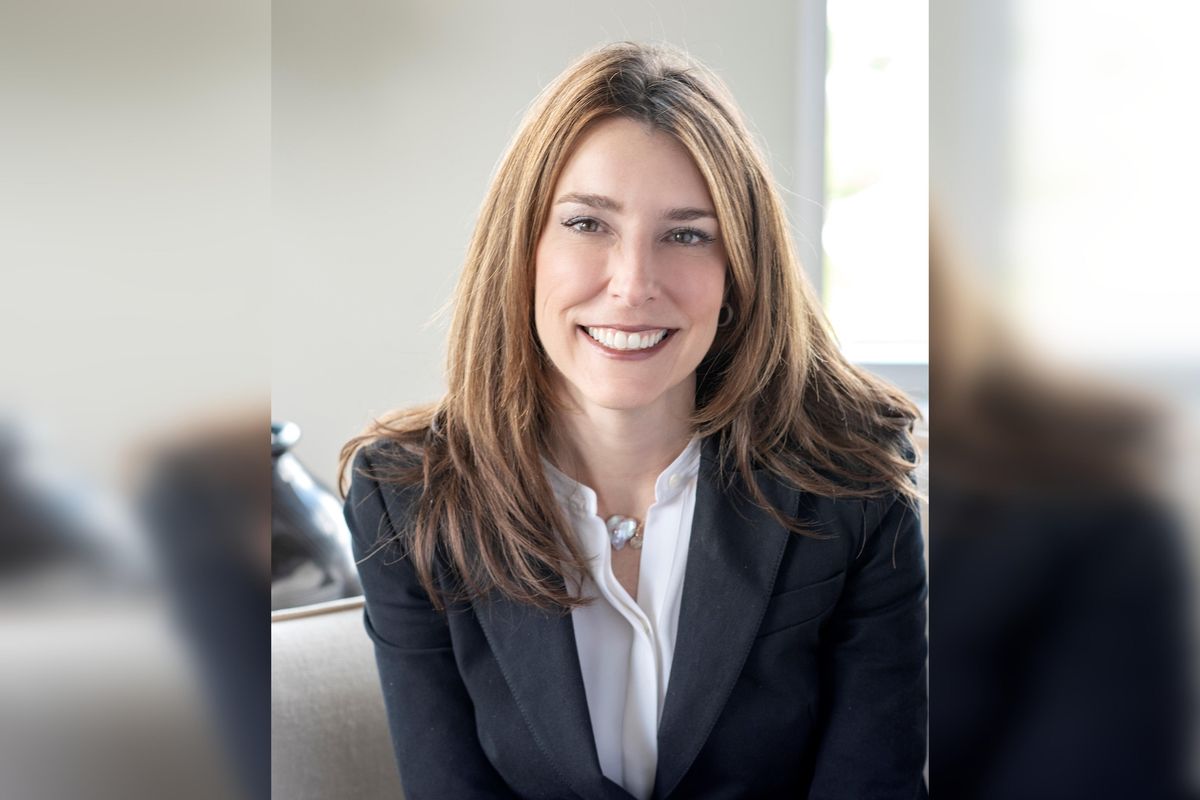When Stephanie Hertzog first started her role as CEO of Houston-based Sodexo Energy & Resources North America in the fall of 2019, she was on the road every week visiting some of the facility management company's 100 million customers.
"I actually had a conversation with my assistant in early March, and said, 'Okay, our goal is that by April, I not be on the road every week. Let's try to get this to at least every other week,'" she recalls. Shortly after, the world changed, and by March 10 she halted all travel and was forced to lead her company to innovate in more ways than one.
"When we think about innovation, we often think about technology, but we've had to innovate so much in the last 12 months, in how we do everything," she says. "We've really asked a lot of our teams over the last year in regard to having to rethink how they do things and be innovative and adapt."
To Hertzog, it's this adaptation and innovation she's seen in the last year that will allow her industry to support an energy transition and, as she says, "preserve" beyond the pandemic and inevitable future downturns.
InnovationMap talked with Hertzog about the importance of adaptation in the energy industry, new technologies that Sodexo has implemented in that effort, and how a diverse workforce plays a role in all of it.
InnovationMap: Why is it important for the energy industry to continue to adapt and be innovative?
Stephanie Hertzog: Oftentimes, the energy industry gets viewed a bit as being old school. We, as an industry, have really embraced technology for decades now. And I really think that it's what's allowed us to continue to survive during all of the down cycles.
In today's age, where we have renewables growing their percentage of the market, and there's a lot of enhanced enthusiasm around carbon reduction efforts. And technology will be at the forefront of that energy transition. Technology is going to be a big part of how we continue to provide affordable energy for the foreseeable future.
IM: You're originally from the Houston area. How has it changed and what makes you excited for Houston's future?
SH: I'm most excited about Houston and most proud of Houston in that we've always been a very diverse and international city. I think a lot of that has been driven over the years by energy business, bringing in people from all over, but we also have a high immigrant population. And I think that diversity has really led us to be entrepreneurial. Thinking about innovation and technology, having that diversity of thought and opinion has helped us to continue to be a leader in that space over time. We've always been a large city ever since I was young, but we're continuing to grow. And we're seeing more and more people transplanting here from other parts of the country. And I think that's exciting to see us getting more diversity in our economy as well.
IM: Why is it important — from a business perspective — to have a diverse workforce?
SH: There's a lot of research on this topic. It's very clear that businesses that have more diverse leadership teams outperform those that don't, and so having diversity in the room leads people to ask different questions, to have more discussion and to have more questioning of the status quo.
IM: What has been the most impactful adaptation in your industry in recent years?
SH: It's really been embracing software technology. The mobile aspects of being able to get data on your phone has really allowed us to put in a lot of systems that have allowed us to, for example, better track tasks and make sure that things get done to optimize janitorial cleaning schedule. There's a lot of stuff that we used to do on paper at a site that we now do electronically, which allows us to compare site versus site and see not just how well can that site do, but how well is that site doing versus other sites. It's all about doing what we do really well and as efficiently as possible.
We have a recent innovation that we've been working on: augmented reality glasses that allow someone on an offshore platform, for example, to wear the glasses and someone back in Houston in an office tower to see what that person is seeing almost through their own eyes. That is an example being able to get things done faster. I don't have to physically travel someone to the platform, I can just be able to get them in real time. And so there are a lot of things like that. It opens up all new worlds.
IM: Why is augmented reality an especially useful tool in the energy industry?
SH: We already discussed from an efficiency standpoint of being able to get the expertise on site without physically having to get out there. But another aspect of that is the safety element. We always try to keep as few people on site as possible, just because these environments inherently have some amount of safety precautions that we have to take. Some of the things are as simple as to be able to actually get out to an offshore platform, you have to have been helicopter trained. But also, Heaven forbid, something should happen on that platform you want the least amount of people out there as possible.
IM: Did the pandemic play any role in terms of expediting the adaptation of these technologies?
SH: Yes. We were looking for better ways to do anything remotely that we could. That was everything from these glasses to just straight up video conferencing. We normally do a safety walk in-person, but how can you do a safety walk remotely? So I think any opportunity, we had to try to enhance the experience of being there, but not being there — everything got escalated.
IM: In light of Women's History month, why is it important for the energy industry to focus on inclusion of women as it moves forward?
SH: I think the business case is the same as we discussed earlier: better outcomes, more success if we have diversity at all levels in the energy space. And it's really important in energy, because we've been bad at this. Particularly around the gender dynamic, if we look at the highest levels in the energy space, there's just not historically been a lot of representation of women there. We're starting to make some inroads, but we still have a long way to go. Part of it's been a pipeline issue. A lot of the leaders of energy businesses are engineers. Women are now coming out of undergraduate around 40 percent of chemical engineers, so we're getting we're getting close to having parity there – but overall engineering is still only 20 percent female. And from that first manager position and on up, there are big gaps where we lose women along the way.
We're not keeping up with the pace that we've been putting women into the business for a long time. Companies have got to make some real effort here. Certainly the year that the United States had around some of the racial divide, I think that's an important topic for us to be talking about. And we need to all be focusing on getting more of not only diversity, but inclusion as well. It's not just about hiring a diverse group, it's about making those people feel included when they get here and having them want to stay and be a part of our industry. From a Houston perspective, we continue to be a big part of the economy here. And so if we're not getting it right, then Houston's going to struggle.
------
This conversation has been edited for brevity and clarity.







